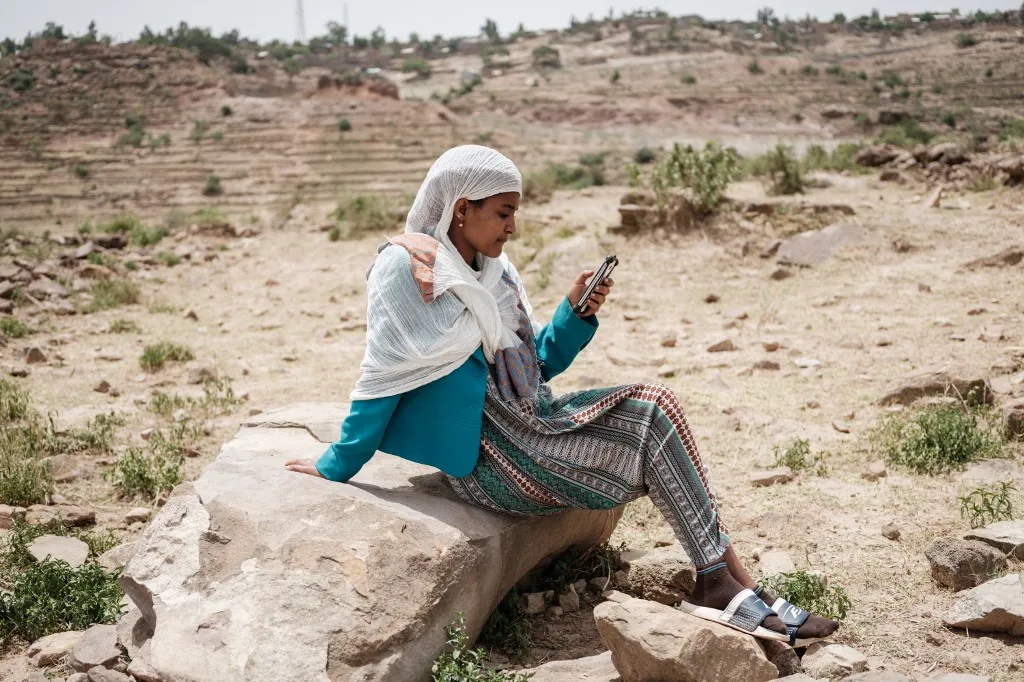The Ethiopian government revealed plans to reopen the bidding process for the second of two telecoms licences put up for auction earlier this year.
Only one of the two private licences put up for auction in May was sold, after the government received unsatisfactory bids for the second, it said.
The winning bidder will be the first foreign telecoms operator to receive a licence to provide mobile banking services in the country, an official confirmed.
“We have made some changes that can uplift its value, for instance mobile financial service,” Balcha Reba, director general of the Ethiopian Communication Authority, told Reuters.
The move signals a U-turn in government policy, after a bidding round for the two spectrum licences fell flat, partly due to the exclusion of the lucrative mobile money sector from the deal.
Despite its being dubbed as “the deal of the century”, only two bids were announced for the first licence – one by South Africa’s MTN Group in partnership with China’s Silk Road Fund and the other by the Global Partnership for Ethiopia Consortium, which includes Kenya’s Safaricom and international partners Vodafone, Vodacom, CDC Group and Sumitomo.
The underwhelming investor response was also blamed on an opaque bidding process and waning investor confidence amid growing insecurity.
Raising the stakes
The sales form a key plank in prime minister Abiy Ahmed’s reform plans, aimed at catapulting the country to middle-income status by 2025. The inclusion of the mobile money licence this time round could help resurrect the plans as war-ravaged Ethiopia casts about for investors amid a crippling foreign exchange crunch.
“This is definitely a valuable additional asset,” says Patrick Heinisch an emerging markets economist at Helaba commercial bank.
It could also raise the benchmark price of $850m that the Vodafone consortium paid in May, says Zemedeneh Negatu, the chairman of US based Fairfax-Africa Fund.
“I expect the valuation for the second licence to be materially higher than the $850m the Vodafone consortium paid in May for the first licence, which didn’t include mobile money,” he told African Business.
“For big telcos in Africa, especially in a large market like Ethiopia with a population of 117m people, the big growth areas include mobile money, data and, in the future, other newer services such as mobile-streaming which leverage the rapidly expanding use of tens of millions of mobile phones.”
MTN Walks Away
South Africa’s telecoms giant MTN bid in the first round in May but was not awarded the licence.
In June MTN’s CEO said the group would bid again in the second round if mobile financial services are included.
But sources told Bloomberg on August 6 that MTN would not bid again for a stake in Ethiopia’s telecoms market, dampening renewed hope in the process.
MTN is unlikely to bid for the licence, an outcome that could only been seen as a setback for the liberalisation process, Bloomberg reported on Thursday, citing unnamed sources familiar with the situation.
Ethiopia’s sole mobile operator, Ethio Telecom, launched a mobile phone-based financial service in May, called telebirr that attracted 4m users weeks after its roll-out.
At the launch the prime minister said that the government had missed out on $500m by denying licence bidders the right to roll out mobile financial services.

In February, the World Bank said that restricting the operation of digital financial services to Ethiopian firms and nationals would “slow down innovation and investment in the market”.
Foreign firms operating in the country are struggling to repatriate profits due to shortage of foreign exchange, while a lack of clarity in Ethiopia’s debt restructuring, and the economic impact of a Delta-driven third wave of Covid-19 all weigh heavily on the country’s prospects, says Heinisch.
A recent offensive by the Tigray Defence Forces against regional militias and central government troops shows that there is no end in sight for the war raging in Tigray. Meanwhile, the latest clashes between Afar and Somali ethnic groups in an ongoing border dispute between their regions led to the blocking of the rail link to the port of Djibouti, which processes 95% of Ethiopia’s external trade.
“Investors may face delays in receiving import commodities that they need for construction purposes. All this weighs heavily on Ethiopia’s investment climate,” Heinisch laments.
Untapped frontier
Ethiopia’s telecoms industry, the largest remaining state monopoly of its kind, was seen as the final frontier for a sector that has underpinned communications, education and healthcare during the pandemic.
The opening-up of Ethiopia’s telecom sector to competition, after 126 years of state monopoly, is a landmark step signifying the liberalisation of both the telecoms sector and the wider economy, under the “Home Grown Economic Reform” programme started almost two years ago, says Fairfax-Africa Fund’s Negatu.
Besides the two new licences, the government has offered 40% equity to international investors in Ethio Telecom, considered the crown jewel in Ethiopia’s economy.
“In the last two years, under its new CEO and management team, it has grown its business significantly, increased its profitability and made very noticeable improvements of its services. So Ethio Telecom will be an attractive strong partner to any large global telecom operator seeking to enter not only the big Ethiopian market but also to expand across the Eastern Africa region and beyond,” he says.
Ethiopia’s economy grew at an annual rate of 9.4% between 2010 and 2020, yet the long-term exclusion of private operators led Ethiopian telecoms to lag far behind developments in Kenya and South Africa. Businesspeople travelling in the country frequently complain about inadequate or non-existent mobile service. In a 2017 UN index, Ethiopia’s telecoms development ranked 170th out of 176 countries.
By contrast, all over the continent, improved mobile telecommunications have been boosting productivity and growth. According to GSMA, mobile technology has driven a fifth of income-per-capita growth over the last 20 years in sub-Saharan Africa, and there will be an estimated 1bn mobile connections in the region by 2024.
Additional reporting by Charlie Mitchell.
Want to continue reading? Subscribe today.
You've read all your free articles for this month! Subscribe now to enjoy full access to our content.
Digital Monthly
£8.00 / month
Receive full unlimited access to our articles, opinions, podcasts and more.
Digital Yearly
£70.00 / year
Our best value offer - save £26 and gain access to all of our digital content for an entire year!

 Sign in with Google
Sign in with Google 





